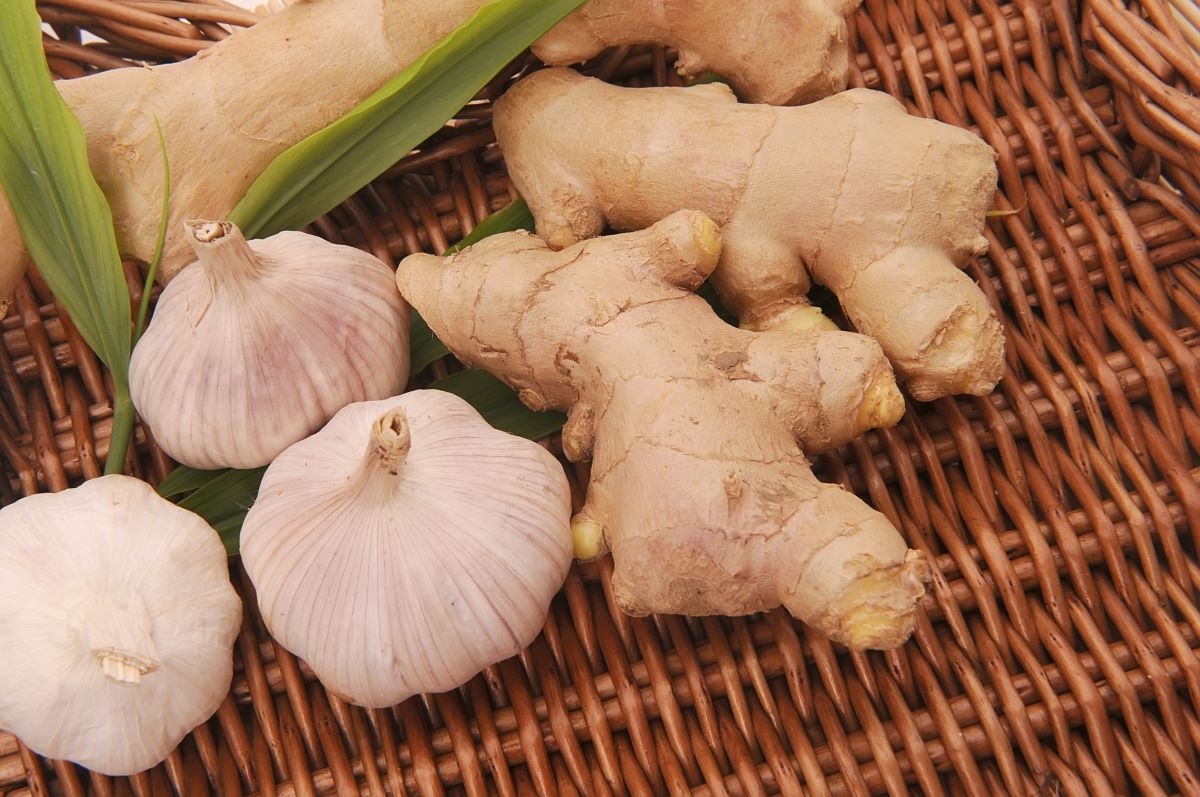

Articles
How To Store Garlic And Ginger
Modified: August 17, 2024
Learn the proper way to store garlic and ginger to keep them fresh and flavorful. Our informative articles provide useful tips and techniques for storing these essential spices.
(Many of the links in this article redirect to a specific reviewed product. Your purchase of these products through affiliate links helps to generate commission for Storables.com, at no extra cost. Learn more)
Introduction
Welcome to the world of delicious flavors and aromatic wonders! Garlic and ginger are two essential ingredients that add depth and richness to countless dishes. Their distinctive flavors and powerful health benefits have made them kitchen staples for centuries. Whether you’re a professional chef or an enthusiastic home cook, it’s important to know how to store garlic and ginger properly to ensure their freshness and flavor are preserved.
In this article, we’ll explore the benefits of storing garlic and ginger, discuss the various storage methods available, and provide helpful tips for using stored garlic and ginger in your culinary creations. So, let’s dive in and discover the secrets to keeping these flavorful treasures at their best!
Key Takeaways:
- Preserve the Flavorful Magic: Properly storing garlic and ginger extends their shelf life, preserves their intense flavors, and maximizes their health benefits. Embrace airtight containers, paper bags, refrigeration, or freezing to keep them at their best.
- Culinary Versatility Unleashed: Stored garlic and ginger can elevate dishes with their aromatic wonders. From marinades to pickling, soups to desserts, their flavors know no bounds. Replenish regularly and let their magic unfold in your kitchen!
Read more: How To Store Ginger In Fridge
Benefits of Storing Garlic and Ginger
Storing garlic and ginger properly not only prolongs their shelf life, but it also helps to maintain their flavor, texture, and health benefits. Here are some key advantages of storing these kitchen staples:
- Extended Shelf Life: Garlic and ginger have a limited shelf life and can spoil if not stored correctly. Storing them properly helps extend their freshness, allowing you to enjoy their flavors for a longer period.
- Preserving Flavor: Garlic and ginger contain volatile oils that give them their distinct flavors and aromas. Proper storage prevents the oils from dissipating, ensuring that the flavor remains robust and intense.
- Easy Accessibility: By storing garlic and ginger in an organized manner, you can easily access them whenever you need them. This saves time and makes cooking more convenient.
- Cost-effective: Buying garlic and ginger in bulk and storing them properly can save you money in the long run. You won’t have to rely on buying small quantities frequently, which often comes at a higher price.
- Health Benefits: Both garlic and ginger possess numerous health benefits. They are known for their antibacterial, anti-inflammatory, and antioxidant properties. Proper storage techniques help retain these valuable properties, allowing you to maximize their potential health benefits.
Now that we understand the advantages of storing garlic and ginger let’s delve into the different storage methods available to ensure their longevity.
Choosing the Right Storage Method
When it comes to storing garlic and ginger, it’s essential to choose the right storage method to maintain their quality and freshness. Here are a few options to consider:
- Airtight Container: One popular method is storing garlic and ginger in airtight containers. This helps to prevent moisture and air exposure, which can lead to spoilage. Use glass jars or containers with tight-fitting lids and ensure they are clean and dry before storing.
- Paper Bag: Another option is to store garlic and ginger in a paper bag. Place them in separate bags and fold the tops to allow some airflow while keeping them protected from sunlight. The paper helps absorb excess moisture, preventing the risk of mold formation.
- Refrigerator: If you prefer to store garlic and ginger in the refrigerator, wrap them in paper towels or place them in perforated plastic bags and store them in the vegetable drawer. The cool temperature can help extend their shelf life, but be sure to keep them away from moisture to avoid premature sprouting.
- Freezing: Freezing garlic and ginger is an excellent option for long-term storage. Peel and mince or grate the garlic and ginger, then store them in airtight containers or freezer bags. Freezing can alter their texture, but the flavor remains intact.
Choose the storage method that best suits your needs and the available space in your kitchen. Remember to consider factors such as convenience, shelf life extension, and maintaining flavor integrity.
Now that we’ve explored the storage methods, let’s dive into the specific techniques for storing garlic and ginger separately for optimal freshness.
Storing Garlic
Garlic is a versatile ingredient that adds a distinct flavor and aroma to a wide range of dishes. To ensure it stays fresh and flavorful, follow these storage tips:
- Choose the Right Garlic: When purchasing garlic, select bulbs that are firm and free from any signs of mold or blemishes. The fresher the garlic, the longer it will last.
- Avoid Direct Sunlight: Garlic should be stored in a cool, dry place away from direct sunlight. Exposure to sunlight can cause it to sprout and lose its flavor.
- Keep it Dry: Moisture is the enemy of garlic. Avoid storing it in areas with high humidity, as it can lead to mold formation. Do not wash garlic until you are ready to use it.
- Do Not Refrigerate Whole Garlic Bulbs: Refrigeration can cause garlic to become soft, sprout, or develop a rubbery texture. It is best to store whole garlic bulbs in a cool, dry place instead.
- Store Peeled Garlic Cloves in Oil: If you have peeled garlic cloves and want to keep them for an extended period, submerge them in olive oil or vegetable oil and refrigerate. The oil helps preserve the garlic and adds flavor.
- Consider Homemade Garlic Powder or Garlic Salt: If you have an excess of garlic, you can create your own homemade garlic powder or garlic salt. Dry the garlic cloves thoroughly, then grind them into a fine powder or mix them with salt. Store in an airtight container in a cool, dry place.
By following these tips, you can keep your garlic fresh, flavorful, and ready to enhance your favorite recipes for an extended period.
Now, let’s move on to exploring how to store ginger to preserve its unique spicy and zesty flavor.
Store garlic and ginger in a cool, dry place with good air circulation, such as a pantry or a mesh bag. Avoid storing them in the refrigerator, as it can cause them to sprout or become moldy.
Storing Ginger
Ginger is a pungent and aromatic root that adds a delightful kick to various dishes and beverages. To ensure its freshness and flavor are preserved, follow these guidelines for storing ginger:
- Choose Fresh Ginger: Pick ginger roots that feel firm and smooth with taut skin. Avoid any signs of mold, wrinkling, or soft spots.
- Keep it Dry: Moisture is the enemy of ginger, so store it in a dry place. Avoid washing the ginger until you are ready to use it, as excess moisture can lead to mold.
- Refrigerate Unpeeled Ginger: For longer-term storage, wrap the unpeeled ginger in a paper towel, place it in a resealable plastic bag, and store it in the vegetable drawer of your refrigerator. This can help keep it fresh for up to three weeks.
- Freeze Ginger: If you have a surplus of ginger or want to extend its shelf life even further, consider freezing it. Peel the ginger, chop it into small pieces, and store in an airtight container or freezer bag. Frozen ginger can be grated directly into recipes, and it will last for several months.
- Make Ginger Paste: Another option for storing ginger is to make ginger paste. Peel the ginger, chop it into smaller pieces, and blend it into a smooth paste. Transfer the paste into an airtight container and store it in the refrigerator for up to one week.
By following these storage techniques, you can ensure that your ginger remains fresh and ready to spice up your favorite culinary creations.
Now that you know how to store garlic and ginger, let’s explore some tips for using your stored ingredients to enhance your dishes.
Read more: How To Store Ginger Shots
Tips for Using Stored Garlic and Ginger
Now that you have successfully stored your garlic and ginger, it’s time to put them to good use in your kitchen creations. Here are some tips to help you make the most out of your stored garlic and ginger:
- Flavorful Marinades and Sauces: Add minced garlic and grated ginger to marinades and sauces to impart a delicious flavor. They work particularly well in Asian-inspired dishes, stir-fries, and grilled meats.
- Aromatic Stir-Fries: Sauté garlic and ginger before adding other ingredients to a stir-fry. The heat will release their fragrant oils, infusing the dish with their distinct flavors.
- Spiced Soups and Stews: Garlic and ginger are excellent additions to soups and stews, providing depth and warmth to the flavors. Include them in recipes such as curries, noodle soups, and comforting vegetable stews.
- Infused Oils and Vinegars: Create your own flavored oils and vinegars by steeping crushed garlic cloves and ginger slices in olive oil or vinegar. Use the infused oils in dressings, marinades, and as a finishing touch to dishes.
- Pickling and Fermenting: Both garlic and ginger can be pickled or fermented to create tangy and flavorful condiments. Add them to pickles, relishes, and kimchi for a delicious twist.
- Herbal Teas and Infusions: Ginger, in particular, is a popular ingredient in herbal teas. Slice fresh ginger and steep it in hot water to create a soothing and invigorating beverage.
- Baking and Desserts: Don’t limit garlic and ginger to savory dishes. Both ingredients can add a unique touch to sweet recipes as well. Try adding minced ginger and roasted garlic to cookies, cakes, and even homemade ice cream.
Experiment with different recipes and cuisines to fully explore the versatility of garlic and ginger in your cooking. Their flavors can elevate your dishes and leave a lasting impression on your taste buds.
As we conclude our guide on using stored garlic and ginger, remember to replenish your supply regularly to ensure you always have fresh ingredients on hand. Enjoy the vibrant and aromatic journey these culinary powerhouses bring to your kitchen!
Conclusion
Congratulations! You’ve learned the art of storing garlic and ginger to maintain their freshness, flavor, and health benefits. By implementing the proper storage techniques, you can enjoy the versatility and culinary wonders of these essential ingredients for a longer period.
The benefits of storing garlic and ginger are numerous. Not only do they extend the shelf life, but they also preserve the intense flavors and valuable health properties that make them kitchen staples. Whether you choose to store them in airtight containers, paper bags, the refrigerator, or even freezer, the key is to keep them dry, protected from sunlight, and away from excess moisture.
When it comes to using stored garlic and ginger, the possibilities are endless. From adding depth to marinades, stir-fries, and soups to infusing oils, creating pickles, and even using them in baked goods, their flavors can elevate any dish or beverage. The only limitation is your imagination!
Remember to replenish your garlic and ginger supplies regularly to ensure you always have fresh ingredients on hand. By embracing these storage and usage tips, you’ll be well-equipped to enhance your culinary creations and impress your taste buds with the vibrant and aromatic flavors of garlic and ginger.
So go forth, store your garlic and ginger with confidence, and let their flavorful magic transform your dishes into culinary masterpieces!
Now that you've got the scoop on keeping garlic and ginger fresh, why stop there? Extend your savvy to other areas of your kitchen with our guide on the finest garlic storage solutions, ensuring your spices stay potent and ready for use. For broader culinary prep, dive into our comprehensive review of top food storage practices to make your kitchen more efficient. And if your pantry feels a bit chaotic, our detailed strategies for pantry organization will transform clutter into clarity, making meal prep a breeze.
Frequently Asked Questions about How To Store Garlic And Ginger
Was this page helpful?
At Storables.com, we guarantee accurate and reliable information. Our content, validated by Expert Board Contributors, is crafted following stringent Editorial Policies. We're committed to providing you with well-researched, expert-backed insights for all your informational needs.
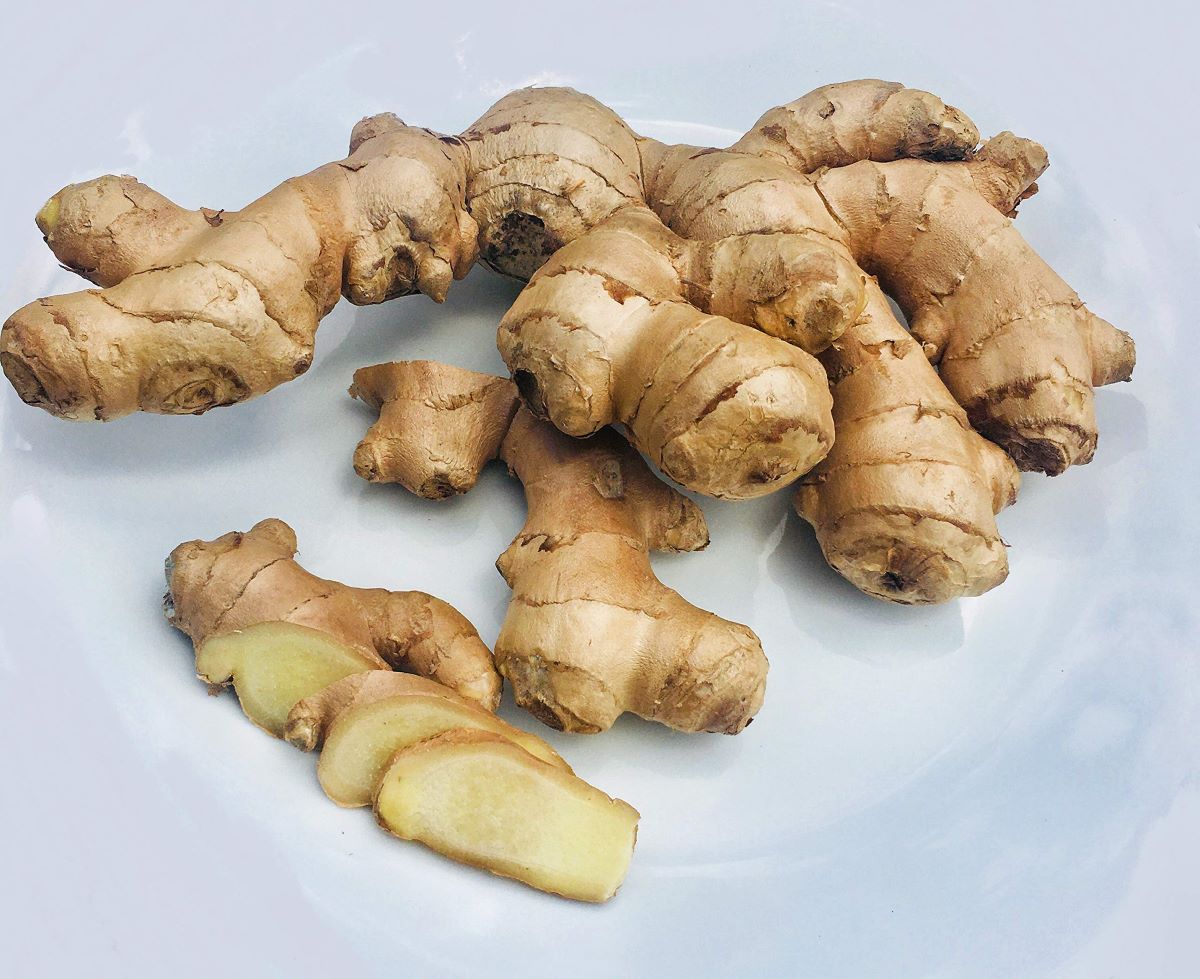
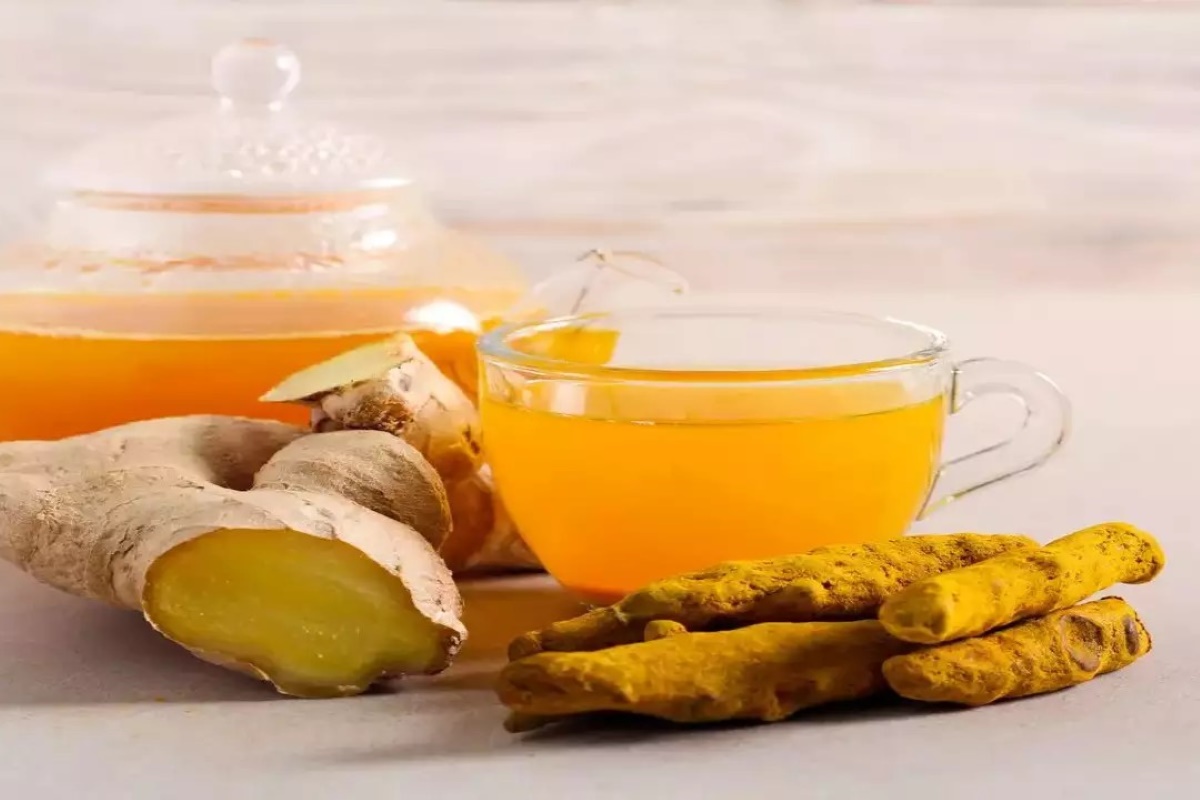
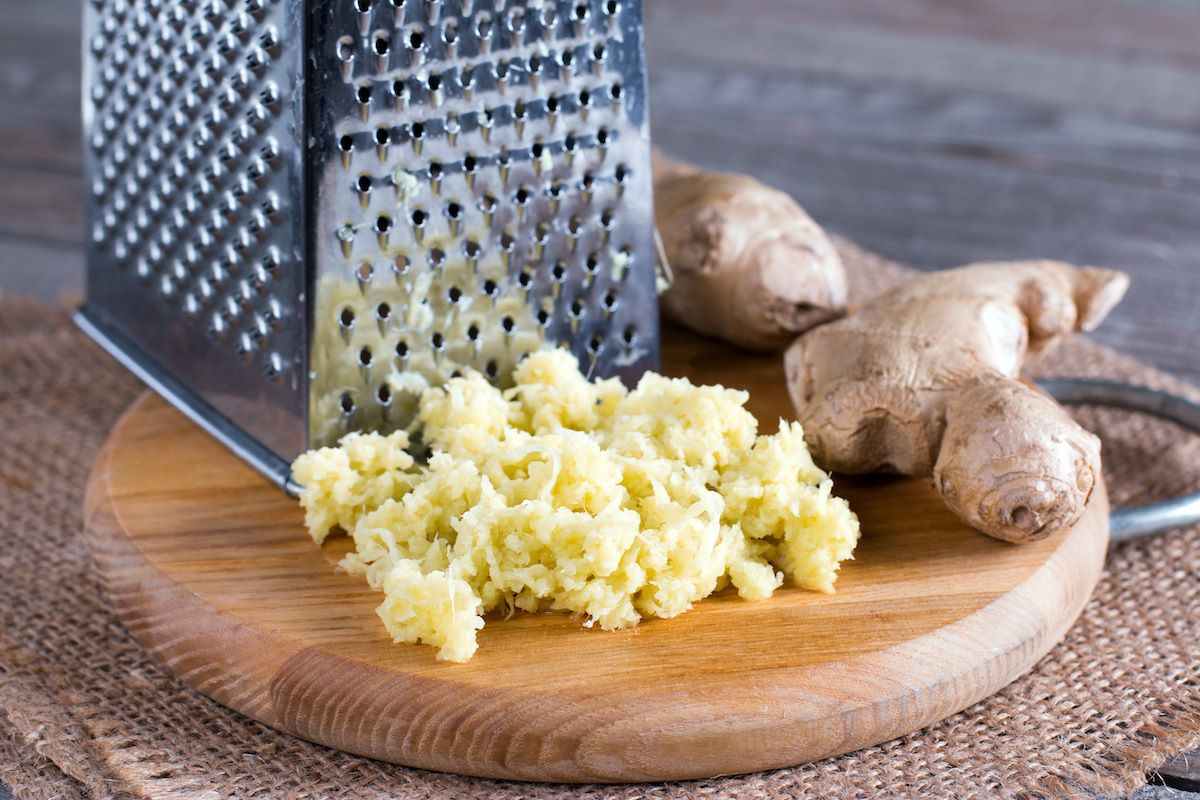

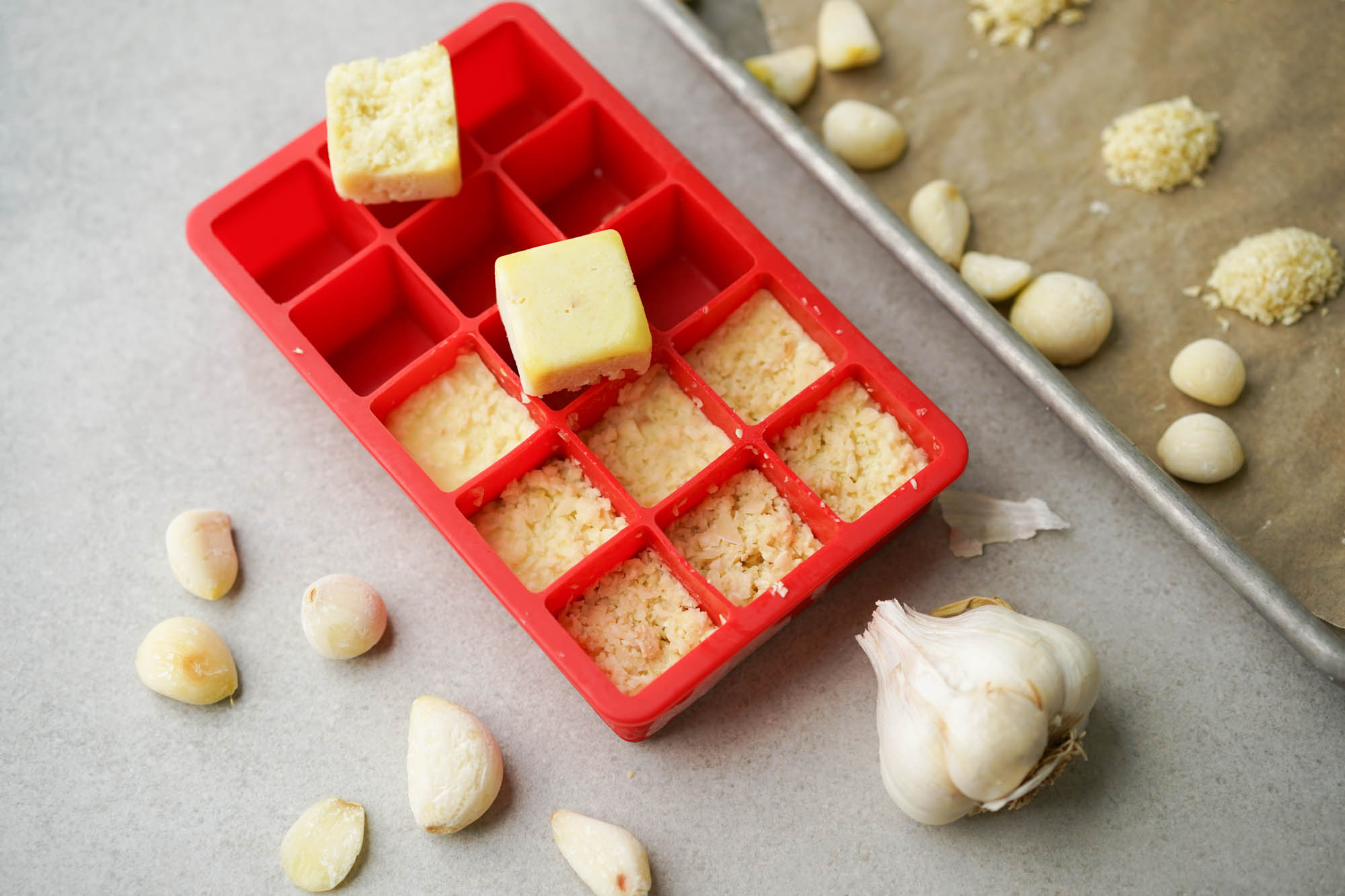
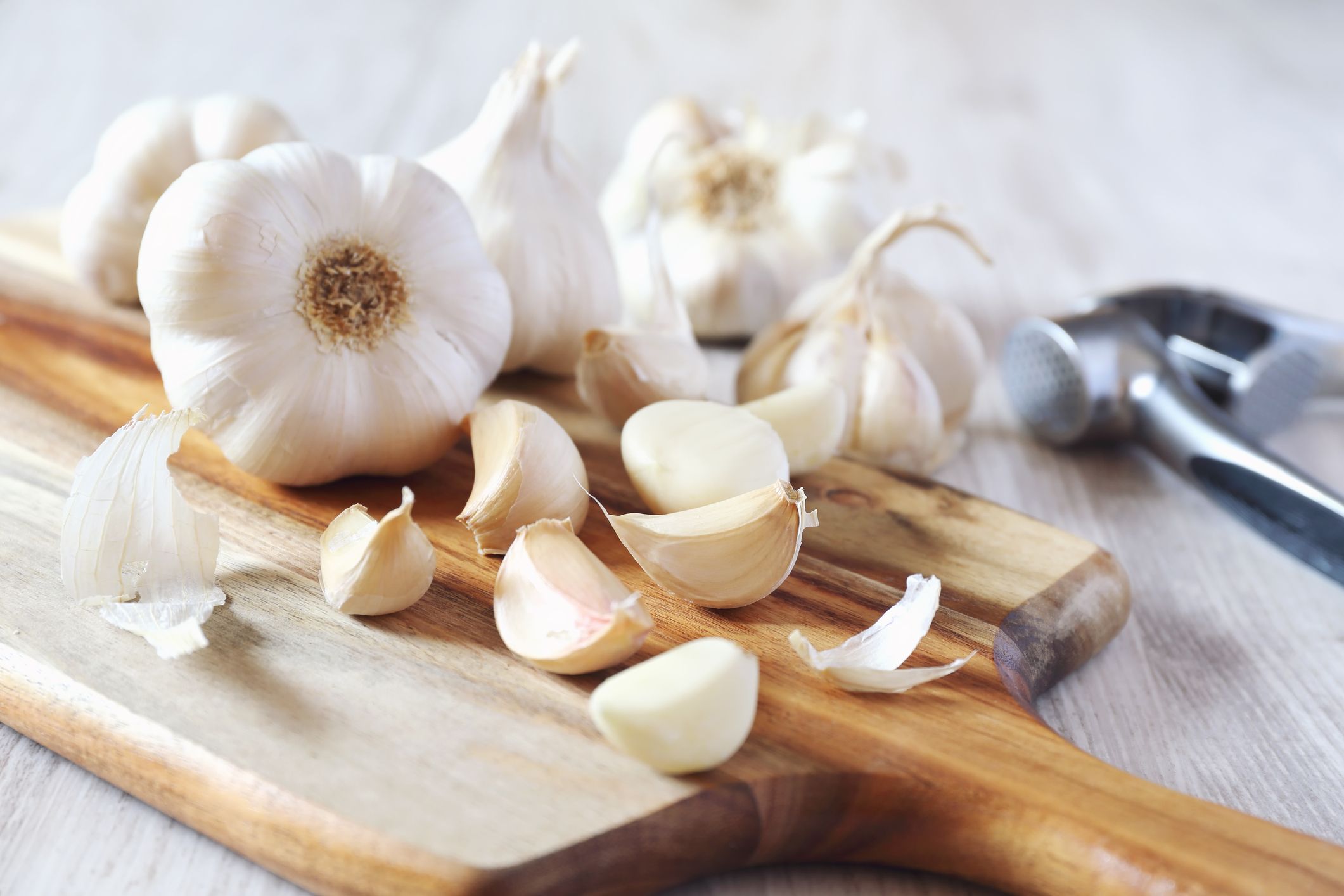
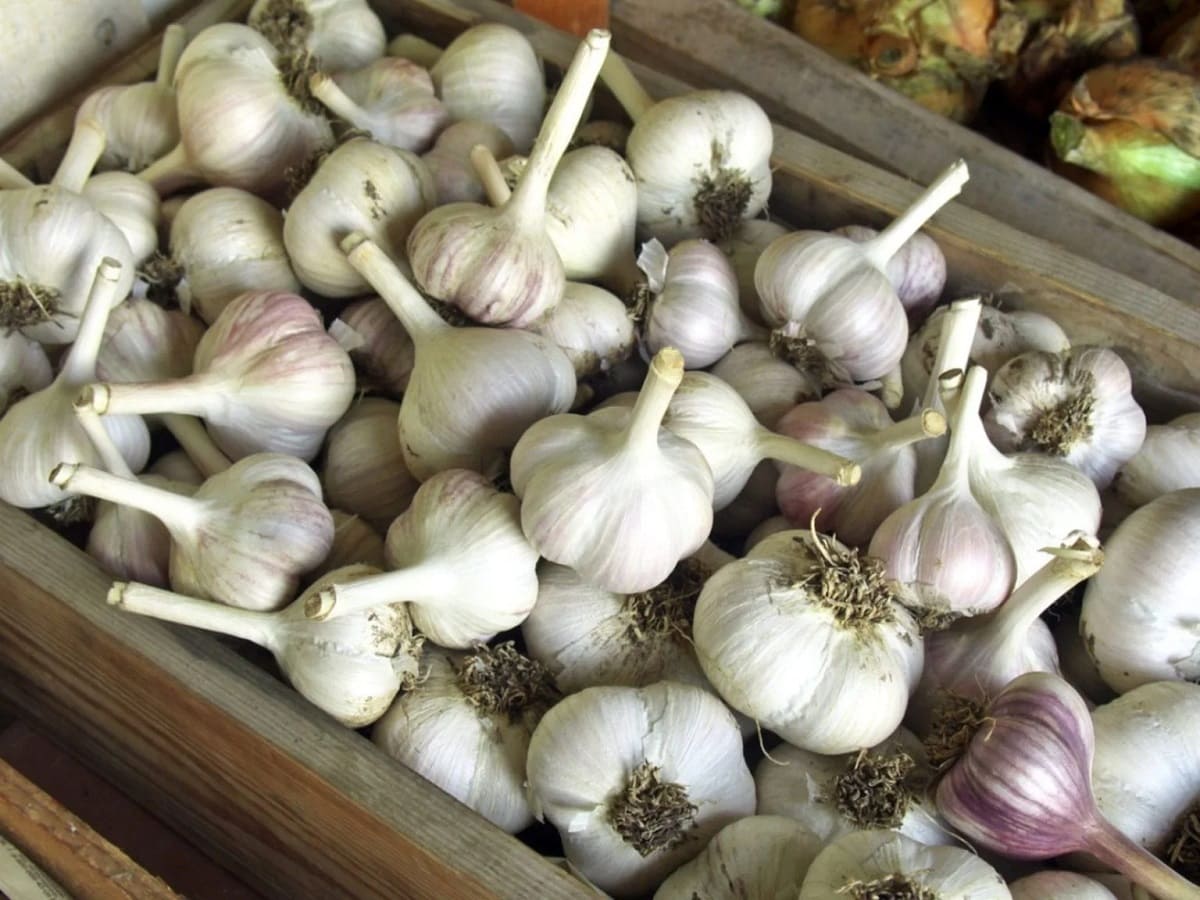
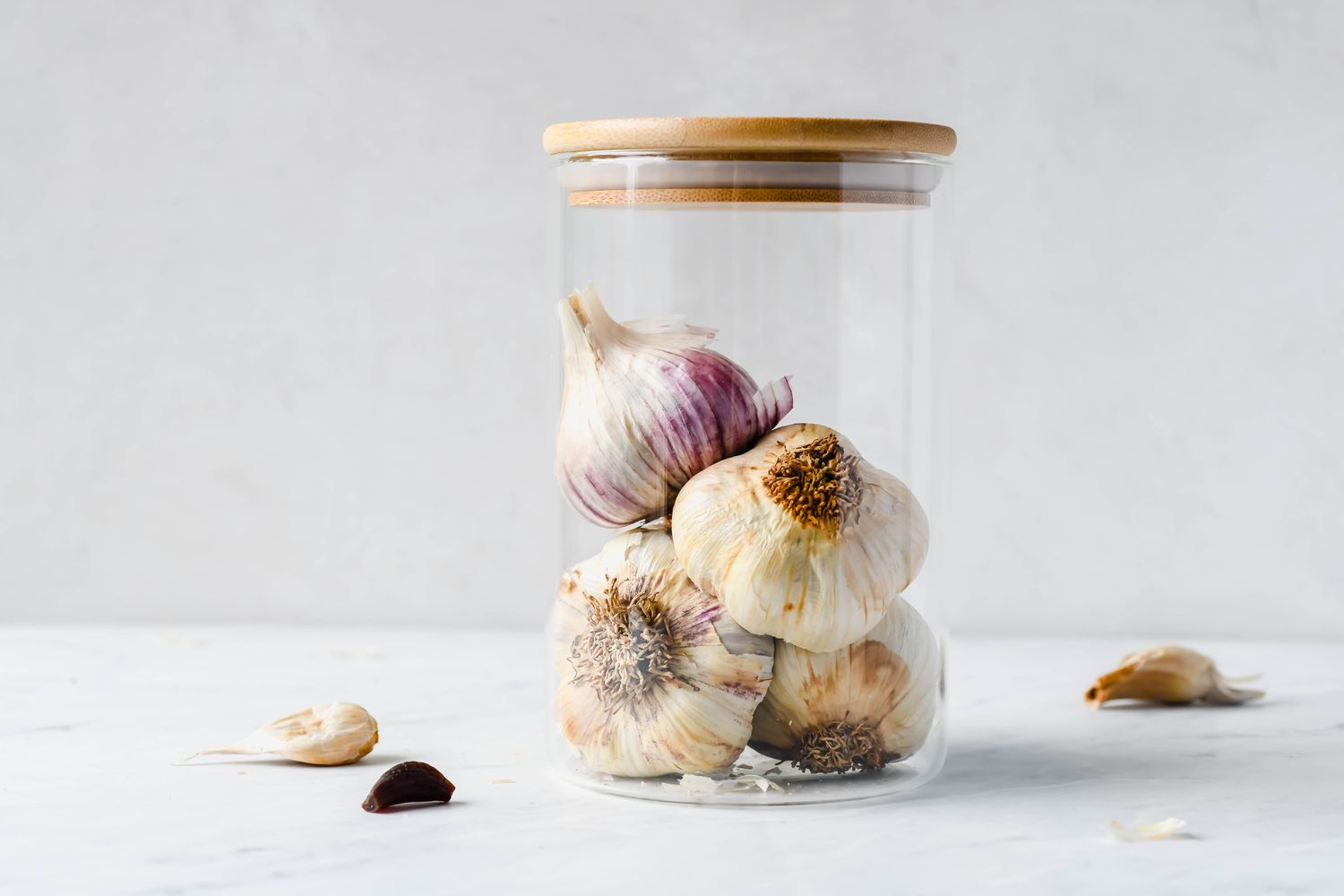
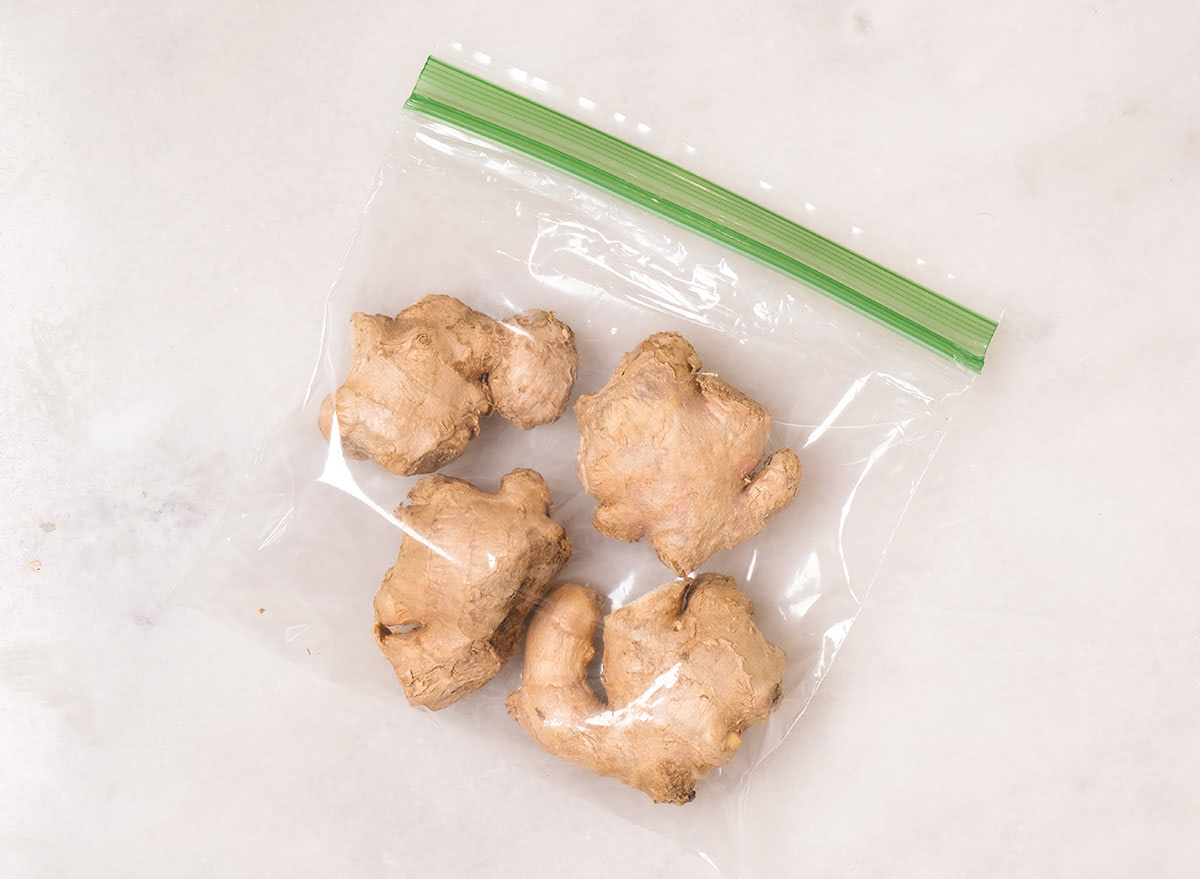

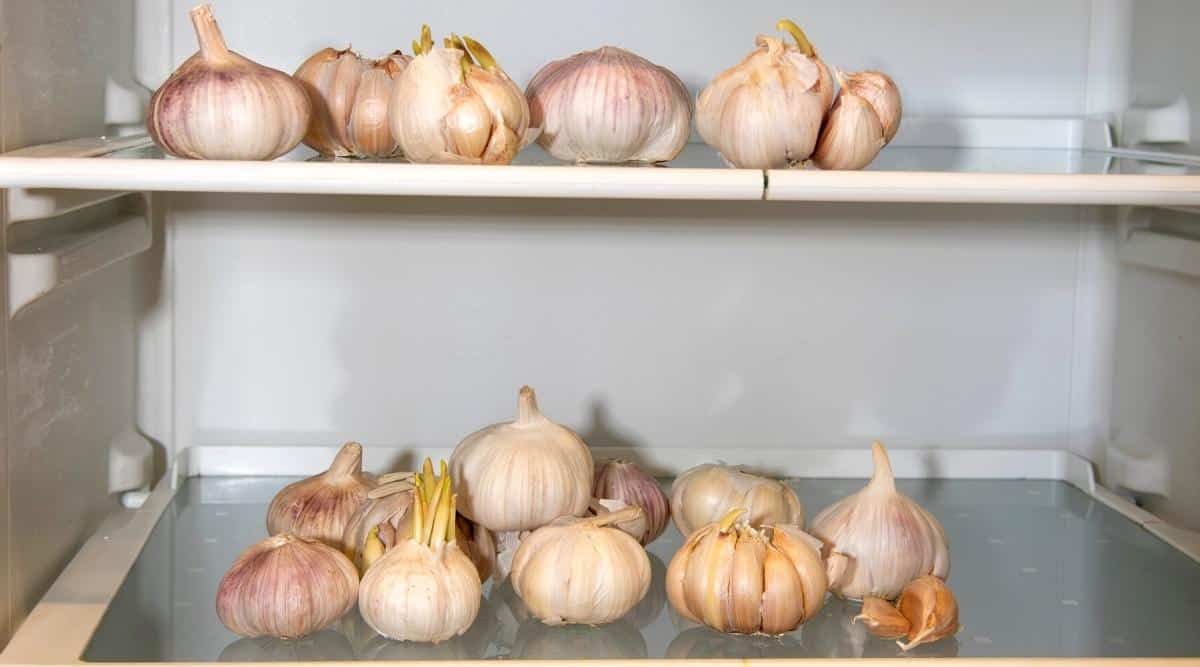
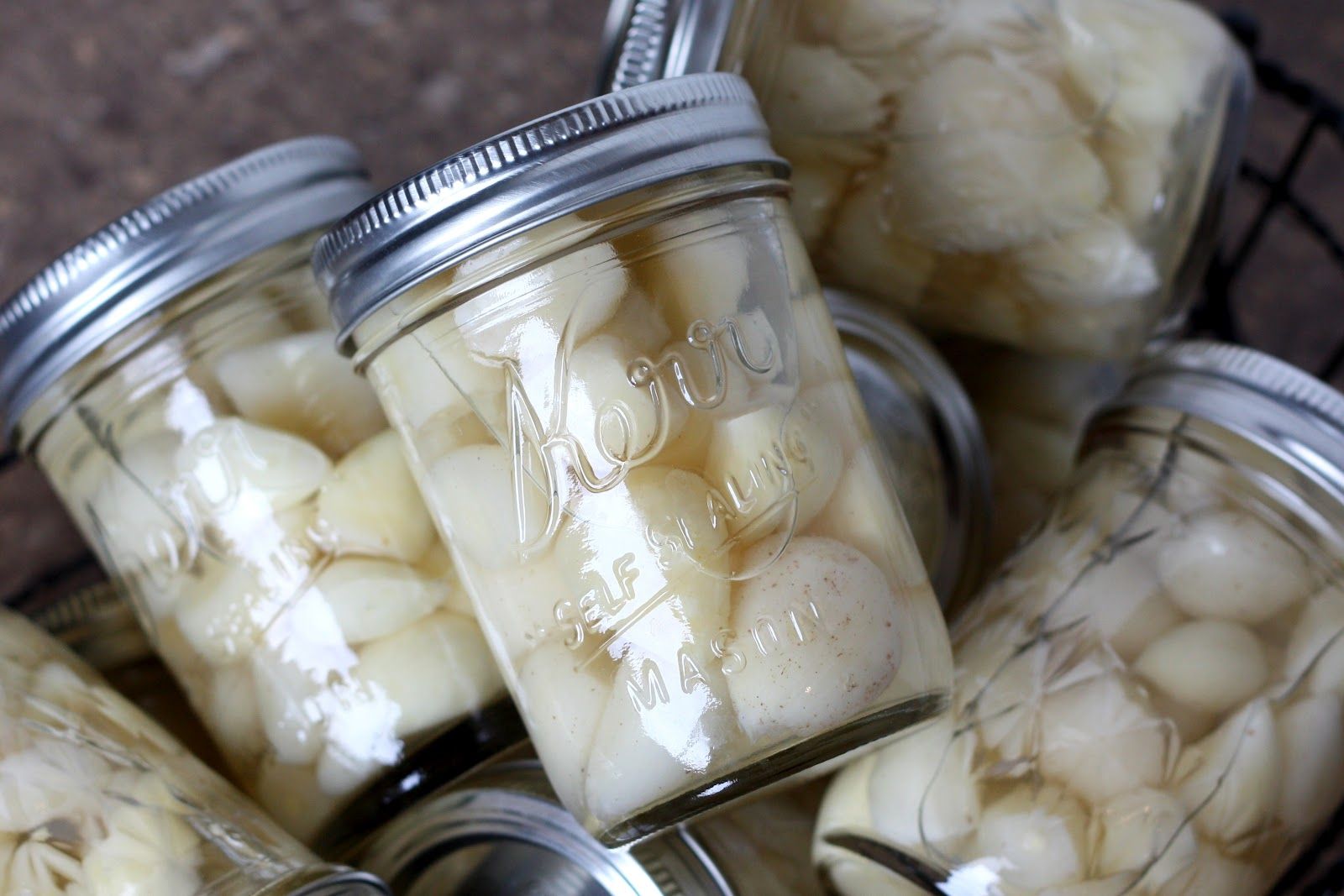
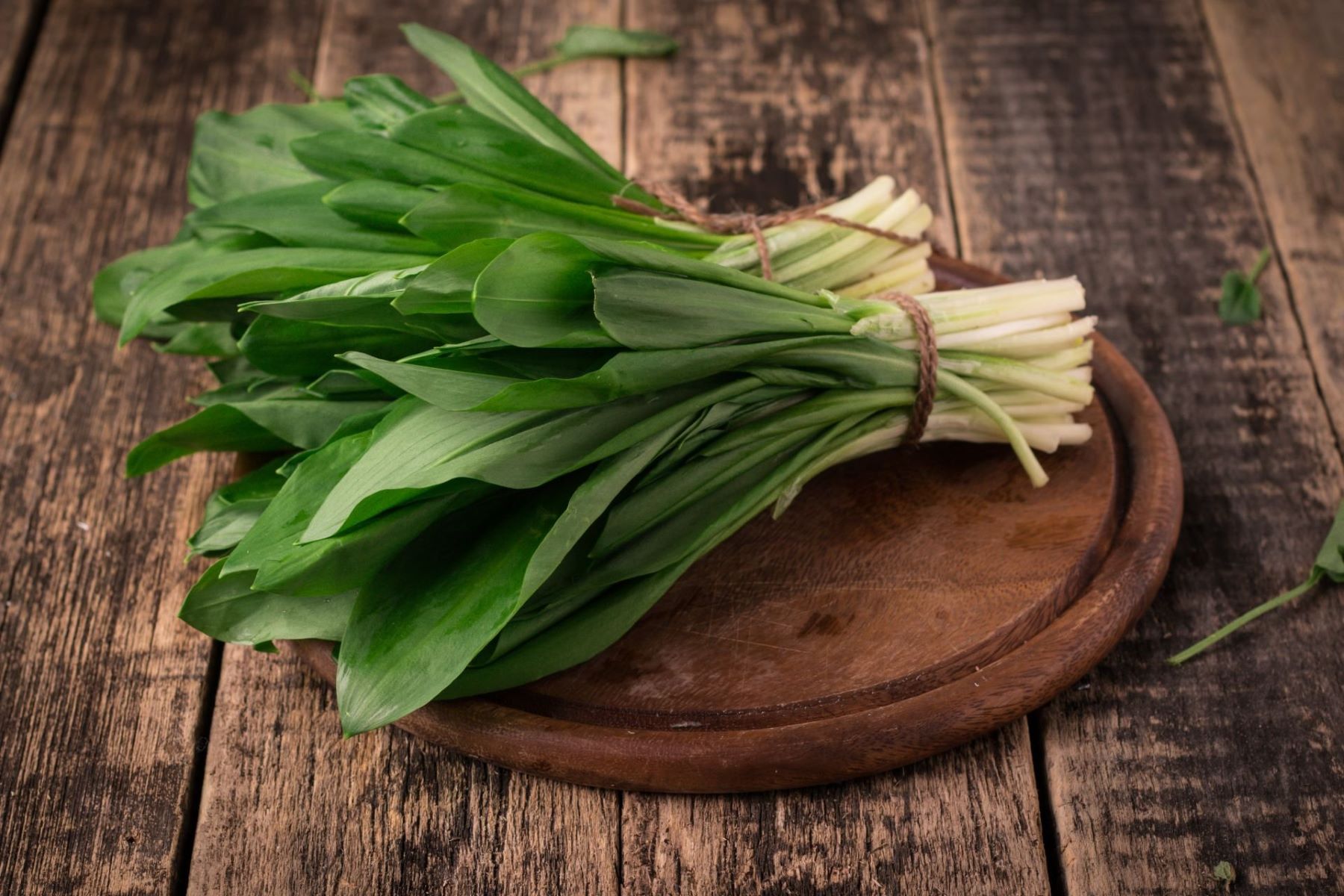
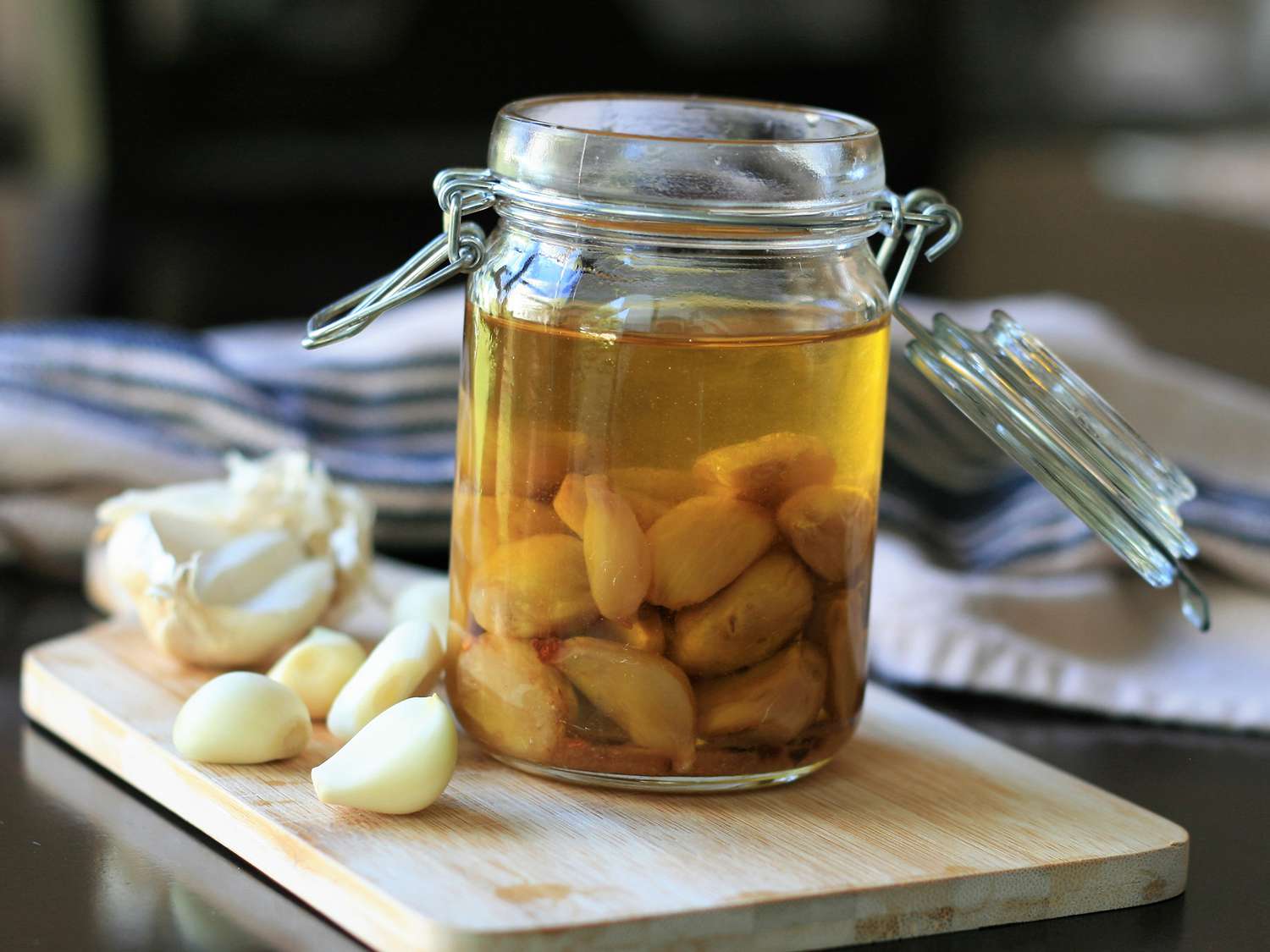

0 thoughts on “How To Store Garlic And Ginger”